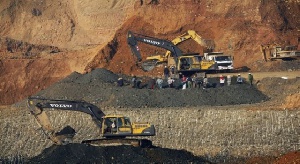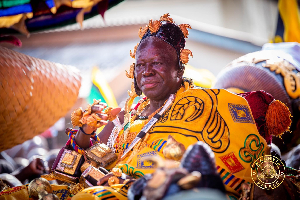The Australian High Commission in Ghana has engaged key advocacy groups at a forum to dialogue on the importance of ending gender-based violence.
Participants include members of the Ghana-Australian Alumni Association and the Women in Mining Ghana, as well as some key speakers from the Human Rights Advocacy Centre, ActionAid Ghana and the World Vision.
The forum was part of activities to commemorate the International Women's Day - March 8, to celebrate the economic, political and social achievements of women.
It was also to share knowledge and strategies as to how both countries have handled the issue on gender-based violence, and come out with further strategies and solutions for stronger outreach.
Mr. Timothy Millikan, Acting High Commissioner, said the occasion presents the best opportunity to reflect on the progress made in the past year and to recommit to addressing the persistent barriers to the realisation of full gender equality and women's empowerment.
He said violence against women was a major obstacle to achieving development outcomes, including gender equality, economic empowerment and a peaceful society.
He said the Australian government has therefore set it as a priority to eliminate violence against women and it was committed to supporting and partnering with other countries in this area.
He said government through its foreign policy and aid programmes, seeks to ensure that women and girls are able to live free from violence, have access to support service and justice among others.
To this end the Australia's Department of Foreign Affairs and Trade's Gender "Equality and Women's Empowerment Strategy," which was launched in February this year, would serve as a guide to her government's foreign policy, economic diplomacy and aid for trade, he said.
The strategy, he said, covers three priority areas which involves; enhancing women's voice in decision making, leadership and peace-making, promoting women's economic empowerment and ending violence against women.
Mr Millikan commended Ghana for initiating a similar event to launch its National Gender Policy and active advocacy to empower vulnerable groups.
He said while Australia has committed to allocate US$50 million in the Gender Equality Fund for 2015-2016 as part of its aid budget for the period to accelerate support for gender equality in her development programme, it was interested in seeing initiatives being carried out in Ghana by its civil society.
There was a panel discussion on the situation in Ghana, the level of advocacy and challenges, collaborations and strategies, as well as solutions for stronger outreach.
The key speakers included Ms Margaret Brew, Advocacy Manager, ActionAid Ghana; Mr Gregory Dery, Child Protection and Advocacy Coordinator, World Vision Ghana; Ms Wendy Abbey, Technical Advisor, and Mr George Owoo, Acting Executive Director, both from the Human Rights Advocacy Centre.
They discussed how crimes such as domestic violence, sexual assaults, child molestation and other atrocities against women were being addressed by the establishment of various institutions, including the Domestic Violence and Victim Support Unit of the Ghana Police Service; legislations such as Domestic Violence Bill, as well as policies to punish perpetrators of such crimes.
They also outlined the various strategies such as referral systems for victims, health care, expanded education programmes especially in rural areas, school outreach, and shelter facilities for those facing dangers from their oppressors.
The panellists expressed the view that even though the problem could not be totally eliminated from any human society, it could be reduced to the barest minimum, with strengthened inter-sectoral collaboration.
Business News of Monday, 14 March 2016
Source: B&FT

















